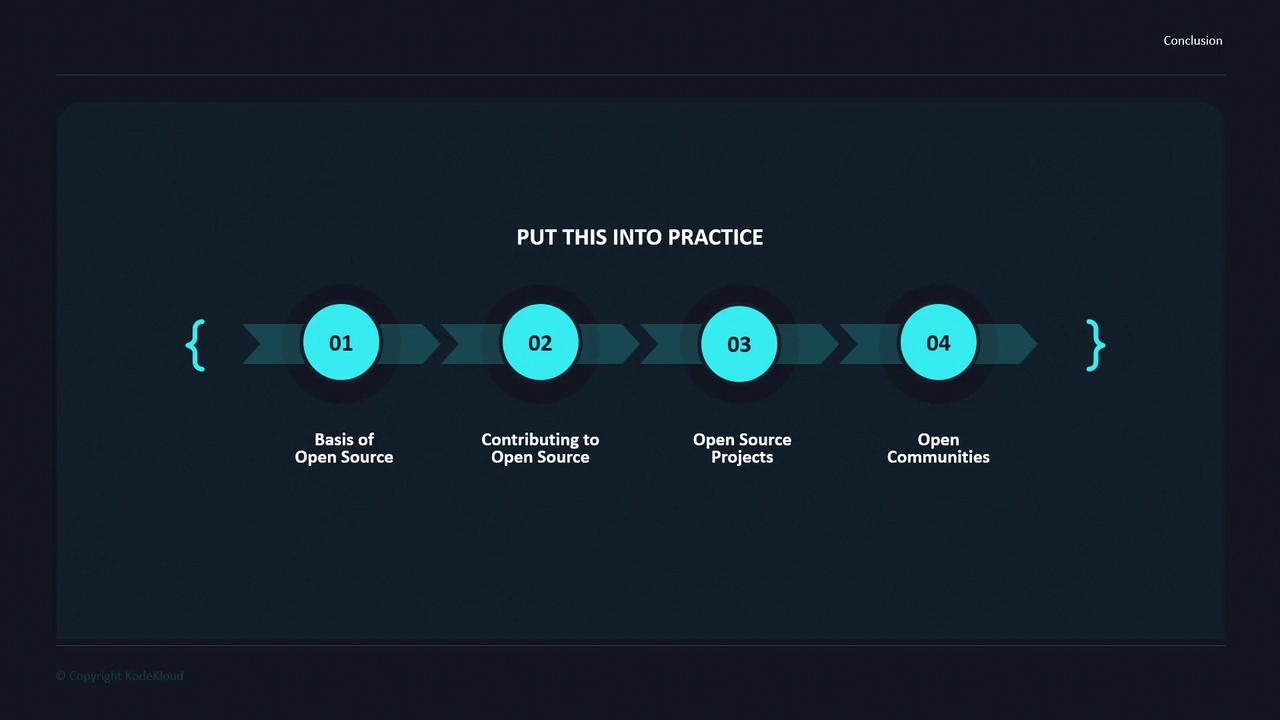Open Source for Beginners
Bonus OSS Communities
Conclusion
Conclusion
Congratulations on completing this lesson! You’ve built a solid foundation in open source principles and are now ready to dive deeper.
What You’ve Learned
- Fundamentals of open source and its core values
- Strategies for effective contributions
- How to launch and maintain your own projects
- Best practices for engaging with vibrant open source communities
Put This Into Practice

Note
Open source thrives on collaboration and continuous learning. Don’t hesitate to ask questions, submit issues, or propose enhancements.
| Step | Description |
|---|---|
| Basis of Open Source | Explore licenses, community etiquette, and project governance |
| Contributing to Open Source | Find issues, submit pull requests, review code, and document your changes |
| Launching Your Own Projects | Set up repositories, choose a license, write clear README files, and promote |
| Engaging with Communities | Join forums, attend meetups, participate in code reviews, and mentor newcomers |
Next Steps
- Browse popular repositories on GitHub or GitLab.
- Read the Open Source Guides for best practices.
- Join communities on Slack, Discord, or mailing lists to stay updated.
- Start your first contribution or project today!
Open source is open to everyone—no matter your background. Your curiosity, passion, and willingness to learn will shape the impact you make.
There are countless opportunities to innovate and collaborate. Dive in, make your first contribution, and help build the future of open source!
Thank you for learning with KodeKloud. We look forward to seeing your next open source adventure!
Further Reading & References
Watch Video
Watch video content